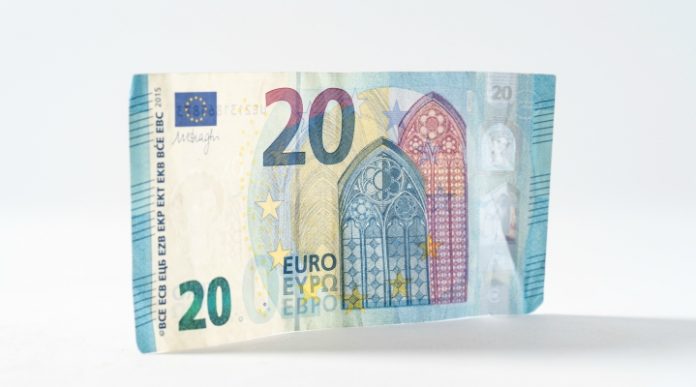After gaining 1.7% versus the euro in Monday’s session on Brexit optimism, the pound fell 1.6% versus the euro in Tuesday’s session. UK Parliament rejected Theresa May’s Brexit deal, which brought the pound euro exchange rate to close at €1.1611. The pound was moving higher again in early trade on Wednesday.
| What do these figures mean? |
|---|
When measuring the value of a pair of currencies, one set equals 1 unit and the other shows the current equivalent. As the market moves, the amount will vary from minute to minute. For example, it could be written: 1 GBP = 1.13990 EUR Here, £1 is equivalent to approximately €1.14. This specifically measures the pound’s worth against the euro. If the euro amount increases in this pairing, it’s positive for the pound. Or, if you were looking at it the other way around: 1 EUR = 0.87271 GBP In this example, €1 is equivalent to approximately £0.87. This measures the euro’s worth versus the British pound. If the sterling number gets larger, it’s good news for the euro. |
Theresa May experienced another sizeable defeat in Parliament on Tuesday evening. 242 ministers voted in favour of her Brexit deal, whilst 391 voted against it. The PM’s deal was rejected by 149 majority, an improvement on the defeat by 230 that she experienced the first time she tried to push the deal through the house of commons.
Earlier on Tuesday, the UK’s top lawyer advised Parliament that the new concessions from Brussels over the Irish backstop arrangement were not legally binding. As a result, ministers made it clear that the Brexit deal did not measure up, by rejecting it for a second time.
Today Parliament will decide if they are prepared to accept a no deal Brexit. Political analysts widely assume that ministers will vote against a no deal Brexit. This leads to Thursday’s vote, which will be on extending Article 50.
Extending Article 50 could open the doors to further negotiation or even a second referendum, both of which are supportive of the pound because they point to a softer Brexit. However, the extended uncertainty is not so good for businesses, which could keep th economy at a standstill for longer.
| Why is a “soft” Brexit better for sterling than a “hard” Brexit? |
|---|
| A soft Brexit implies anything less than UK’s complete withdrawal from the EU. For example, it could mean the UK retains some form of membership to the European Union single market in exchange for some free movement of people, i.e. immigration. This is considered more positive than a “hard” Brexit, which is a full severance from the EU. The reason “soft” is considered more pound-friendly is because the economic impact would be lower. If there is less negative impact on the economy, foreign investors will continue to invest in the UK. As investment requires local currency, this increased demand for the pound then boosts its value. |
The Spring statement is today. Whilst it will almost certainly be overshadowed by Brexit, certain elements such as growth forecasts and inflation outlook, will be watched closely.
Will Eurozone Industrial Production Improve?
With a sparse eurozone economic calendar, the euro spent the previous session trading to the tune of the pound and Brexit headlines.
Today, the health of the eurozone economy will be in focus again. Analysts are forecasting Eurozone industrial production will tick higher in January, after dismal figures in December. On an annual basis eurozone industrial production dived -4.2% in December. This should improve to falling -2.1% in January. This is still a fragile reading.
weak
This publication is provided for general information purposes only and is not intended to cover every aspect of the topics with which it deals. It is not intended to amount to advice on which you should rely. You must obtain professional or specialist advice before taking, or refraining from, any action on the basis of the content in this publication. The information in this publication does not constitute legal, tax or other professional advice from TransferWise Inc., Currency Live or its affiliates. Prior results do not guarantee a similar outcome. We make no representations, warranties or guarantees, whether express or implied, that the content in the publication is accurate, complete or up to date. Consult our risk warning page for more details.
This article was initially published on TransferWise.com from the same author. The content at Currency Live is the sole opinion of the authors and in no way reflects the views of TransferWise Inc.





